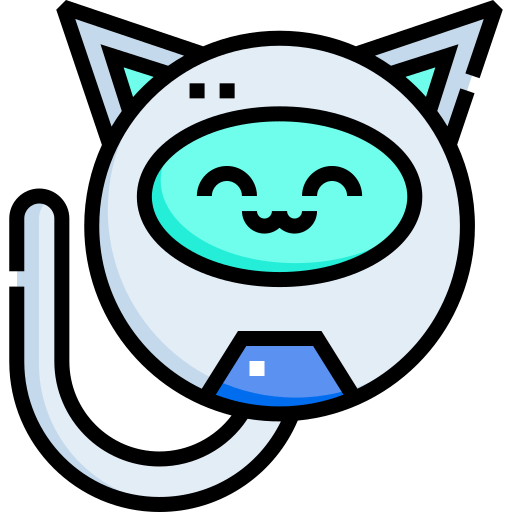
AI-generated content has the potential to significantly impact the traditional notion of “Content is king” in several ways. While AI-generated content offers various advantages and opportunities, it also introduces challenges and ethical considerations that need to be carefully addressed.
Let’s explore these aspects in detail:
- Increased Content Production: AI can produce vast amounts of content at an incredible speed, covering a wide range of topics. This ability allows businesses and content creators to scale their content production and cater to a broader audience. As a result, the volume of content available online may increase exponentially.
- Personalization: AI can analyze user data and behavior to create personalized content tailored to individual preferences. This level of personalization enhances user experiences, increases engagement, and strengthens customer loyalty. AI algorithms can suggest relevant articles, videos, or products, making content consumption more enjoyable and efficient.
- Content Curation and Discovery: AI-powered recommendation systems can help users discover relevant content more effectively. By analyzing user behavior, AI algorithms can suggest articles, videos, or products that align with the users’ interests, leading to increased user satisfaction and longer session times.
- SEO Optimization: AI can assist content creators in optimizing their content for search engines. AI-driven tools can analyze keywords, perform competitor research, and suggest content improvements to boost search engine rankings and increase organic traffic.
- Language Translation: AI-powered translation services can facilitate the global distribution of content. Content creators can reach international audiences by quickly translating their content into multiple languages, thereby breaking language barriers.
- Automated Content Generation: AI can generate content in various forms, such as news articles, product descriptions, social media posts, and even creative writing. This can be particularly useful for data-driven content creation or generating content at scale for e-commerce platforms.
However, there are also challenges and ethical considerations associated with AI-generated content:
- Quality and Originality: While AI-generated content can be efficient, it might lack the creativity, empathy, and originality that human-generated content provides. Ensuring high-quality and unique content becomes essential to maintaining the integrity of the phrase “Content is king.”
- Bias and Misinformation: AI models trained on biased datasets might propagate harmful or misleading information. Ensuring that AI-generated content is accurate, unbiased, and aligns with ethical standards becomes crucial.
- Copyright and Plagiarism: AI-generated content can sometimes inadvertently plagiarize existing works or violate copyright laws. Content creators need to be vigilant in checking the originality of AI-generated content and giving appropriate credit when necessary.
- Trust and Credibility: As AI-generated content becomes more prevalent, there may be concerns about distinguishing between human-generated and AI-generated content. Maintaining transparency about the use of AI in content creation can help build trust with the audience.
- Job Displacement: The increased efficiency of AI-generated content might lead to job displacement in certain industries, especially those heavily reliant on content creation. Striking a balance between human-created and AI-generated content becomes essential for ethical employment practices.
In conclusion, AI-generated content has the potential to enhance content creation, personalization, and discovery, but it also poses challenges related to quality, ethics, and trust. Content creators and businesses must strike the right balance between AI automation and human creativity to uphold the principle that “Content is king” and deliver valuable, meaningful content to their audiences.
Where does the expression “Content is King” come from?

The expression “Content is king” is a popular phrase in the world of digital media and marketing, emphasizing the crucial role of high-quality content in various forms of online communication and businesses. It has its roots in the early days of the internet and has since become a fundamental principle guiding content creation and marketing strategies.
The expression “Content is king” is a popular phrase in the world of digital media and marketing, emphasizing the crucial role of high-quality content in various forms of online communication and businesses. It has its roots in the early days of the internet and has since become a fundamental principle guiding content creation and marketing strategies.
The phrase is often attributed to Bill Gates, the co-founder of Microsoft, who first used it in an essay he published on the Microsoft website on January 3, 1996. The essay, titled “Content is King,” was written by Gates himself and discussed the future of the internet and the opportunities it presented for content creators and publishers.
In the essay, Gates highlighted how the internet was transforming traditional media and content distribution channels. He pointed out that as the internet was evolving, the demand for high-quality content would increase, and those who could provide valuable and engaging content would hold a significant advantage.
Here are some key points from Gates’ essay:
- Content as the Driving Force: Gates argued that content would become the driving force behind the growth of the internet. As more people connected to the web, they would seek valuable and relevant information. Businesses that could offer such content would attract a larger audience and succeed in the digital era.
- Content Distribution Channels: He also stressed the importance of content distribution channels. While the internet offered a vast platform for information sharing, it was necessary to have the right channels to deliver content effectively to the target audience.
- Challenges and Opportunities: Gates acknowledged that the abundance of content would present challenges such as information overload. However, he believed that with the right tools and technology, content creators and aggregators could overcome these challenges and provide users with personalized, valuable content.
Over time, the phrase “Content is king” has become a mantra for content marketers and creators, underscoring the importance of focusing on valuable and relevant content to attract and retain audiences. It emphasizes the idea that high-quality content is the foundation for building a loyal and engaged audience, driving traffic, improving search engine rankings, and ultimately achieving business objectives.
As the digital landscape continues to evolve, the significance of content remains paramount. The phrase “Content is king” continues to serve as a reminder for businesses and content creators to prioritize quality, relevance, and value in their online endeavors.






